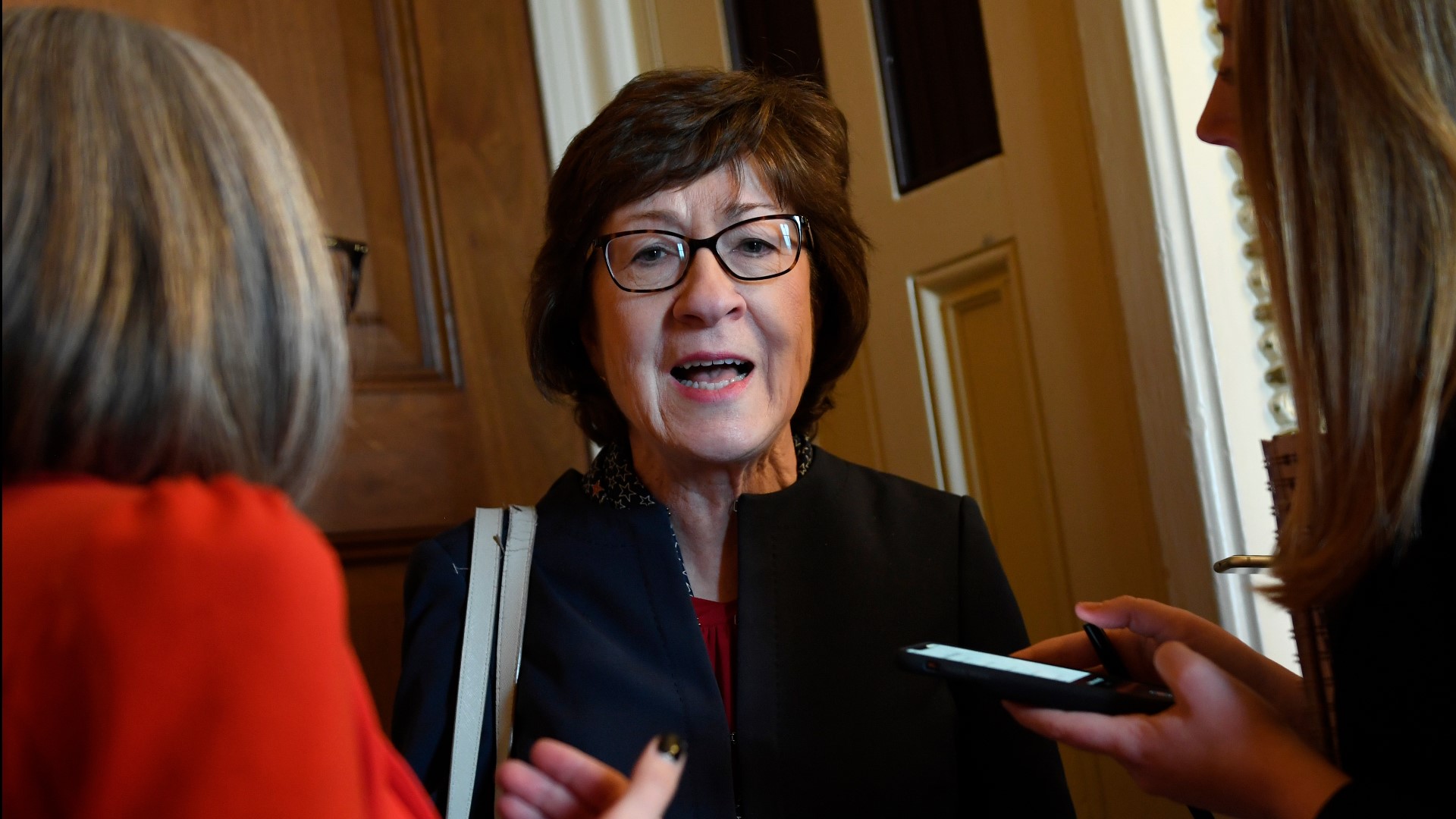WASHINGTON, D.C., USA — Everything has led up to this. Witnesses. It’s been the topic of discussion throughout the entire impeachment process, especially since a sample of former National Security Advisor John Bolton’s book was released to the New York Times this week. It claimed President Trump told him he wanted to withhold hundreds of millions of dollars in security aid from Ukraine until its leaders helped investigate the Bidens: the now-infamous “quid-pro-quo” from which the impeachment trial stemmed.
Bolton would be a crucial witness, clearly, which has divided the Senate on the witness vote even more.
On Thursday, Republican Maine Sen. Susan Collins announced she would break from her party and vote in support of the motion to allow witnesses and documents subpoenaed in the trial. Sen. Collins was considered a key swing vote.
However, Thursday also brought news of another key swing vote, Republican Sen. Lamar Alexander of Tennessee who said he would vote against calling new witnesses.
So, what does this all mean? There are three possibilities:
Scenario one: Trump is acquitted
The Senate moves to reject calling witnesses, and this all comes to an end, the likely scenario. The vote to block new witnesses would mean Senate Majority Leader Mitch McConnell would be expected by the GOP to take control of the floor and make a motion to vote on the two impeachment articles.
Scenario two: 50-50 tie in witness vote
The Senate could deadlock with a 50-50 tie in the Friday witness vote.
Sen. Collins' vote to allow witnesses isn't the deciding factor. Democrats would still need two more Republican senators to vote in favor of allowing witnesses. One of them could be Sen. Mitt Romney (R-Utah), who is expected to vote in favor of witnesses but has not made an official announcement. The other, Sen. Lisa Murkowski (R-Alaska) has also not announced how she will vote, but has been known to break from her party. She was the only Republican senator to oppose nominating Supreme Court Justice Brett Kavanaugh.
If Democrats won those votes—assuming all Democratic senators vote in favor as well—what would a tie mean? In a tie, Supreme Court Chief Justice John Roberts is the presiding officer and would be the tie-breaking vote.
Few are sure what Roberts would do. Some Republicans predict he will not break the tie, causing the motion to fail.
Scenario three: The vote to call witnesses passes
In addition to Collins, Romney, and Murkowksi voting to allow witnesses, Democrats would need one more Republican in order to sway the vote to outright pass the motion. This is the least likely scenario, given Sen. Alexander’s announcement on Thursday. Sen. Jerry Moran (R-Kan), seen as another possibility, also said he would oppose calling witnesses.
If the motion passes, trial rules passed last week say any witnesses subpoenaed would be deposed first behind closed doors, then the Senate would decide if they are needed to testify. How long that process would or could take is not clarified or capped in the rules.
The witness vote is expected Friday afternoon.

